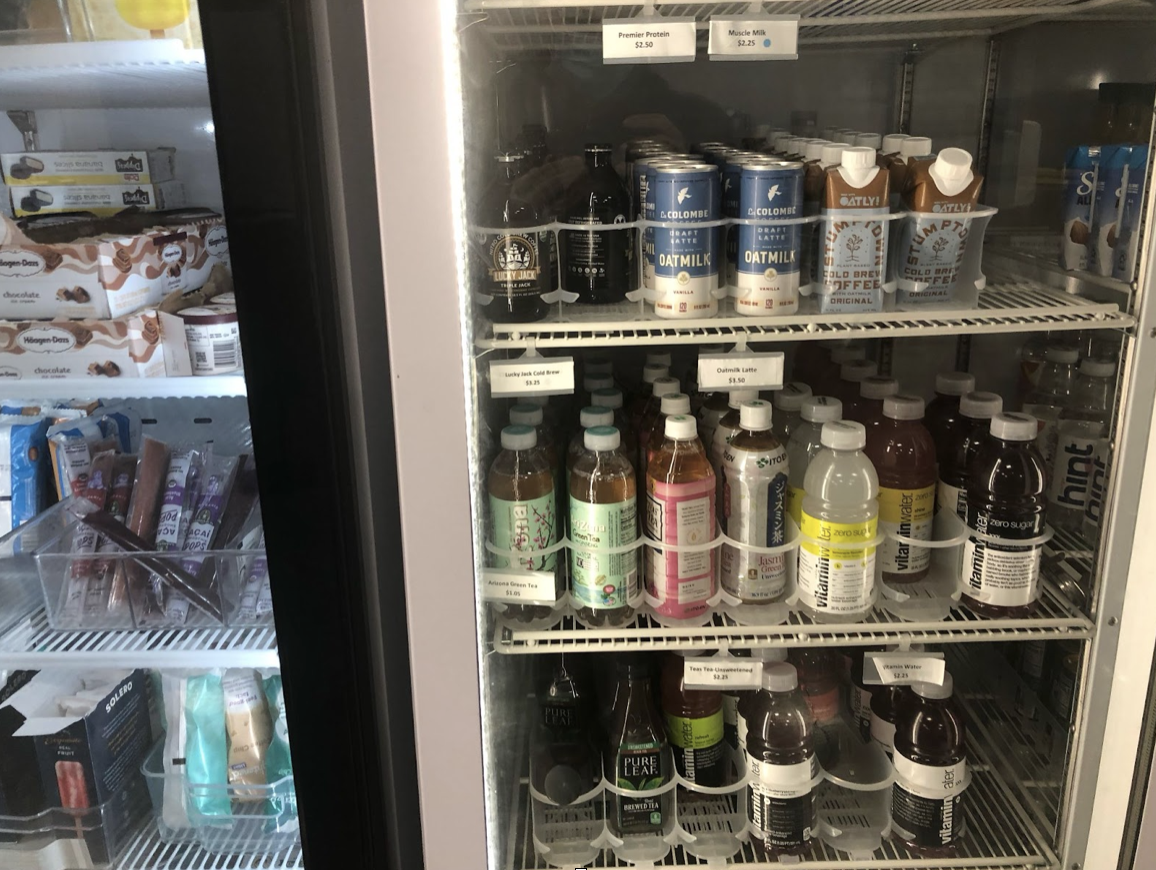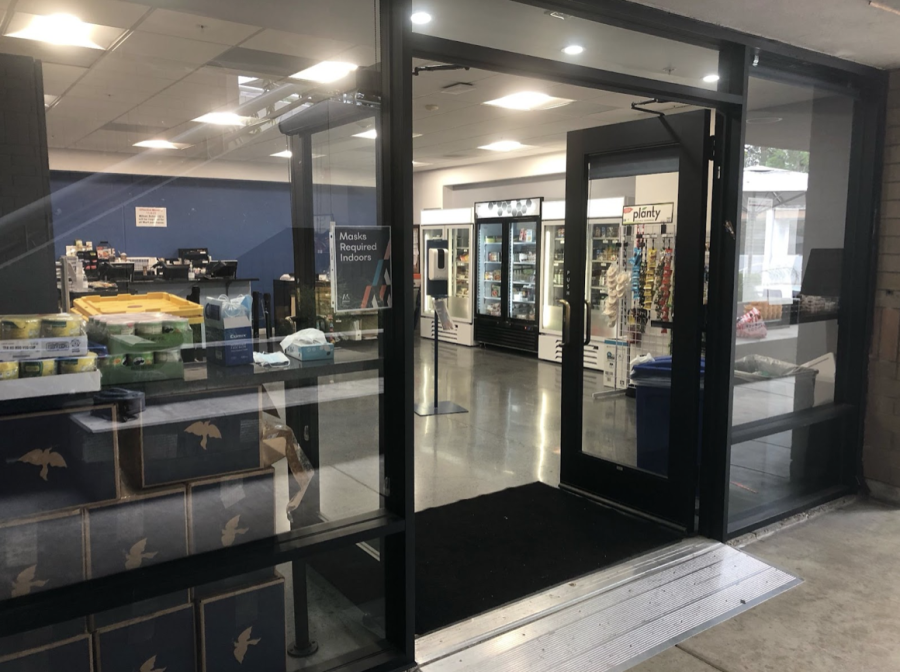Supply Chain Disruptions Hit Milken Mart Hard
The Milken Mart, visible during a short, transient mid-afternoon lull.
One of this year’s longest enduring stories is the saga of Supply Chain Disruptions. We all know the tale: with virus and lockdowns, closures and clogs, hurdles and burdens, the system that gets products where they need to go is in disarray. Shelves are empty, prices are in flux. One participant of Milken life is acutely feeling the pinch. No, not Rabbi Saiger, with his 8-La-Croix-a-day habit. It is, in fact, the bountiful estuary of pre-prepared goods that quenches that thirst of campus life: The Mart.
The Milken Mart, a veritable hole-in-the-wall with prime ground-floor on campus real estate, serves hundreds of students each day who come for snacks, beverages, lunch or a breakfast burrito. Lunchtime throngs are legendary, and after chaos subsides you can scarcely find a morsel. Ruling it all are two stalwart managers, hard-knuckle pushers, restocking fiends, Ms. Orloff and Mrs. Stern. Together they conduct the operation, training parent volunteers, enforcing masks, managing inventory, and aiding all those hungry students.

The Mart had to restock after being closed for the entire previous year. It was then that problems arose. First, it was frozen meals, like Amy’s Cheese Pizza Snacks and Amy’s Bowl Tortellini. Drinks were next, with bottled Starbucks Frappuccinos. Pretty soon, most everything was going in and out of stock. “I couldn’t get Mac and Cheese for a while, I couldn’t get Acai Bites — the acai covered in chocolate,” says Mrs. Stern.
You see, the Milken Mart is an objectively bad location for a store. High in the Brentwood hills, it’s inconvenient for drivers to deliver products. Service fees can be as much as $40, more than the cost of the food itself. Large variety, little storage, and high turnover make consistent delivery of new food imperative for smooth operations. On top of that, everything sold is certified Kosher, yet another logistical hurdle.
The largest problem is the price. The Milken Mart is self-sufficient, with revenue from food sales covering the cost of new inventory. This forces prices up across the board and further limits options. “We can get stock, but it’s so expensive we don’t want kids paying for it. It’s a bad situation” says Mrs. Stern. Out of frustration, both directors have even gone in their free time and bought for the Mart directly from supermarkets. “I’m sorry we can’t charge Target prices,” she laments. “We’re more like a convenience store than a supermarket.”
Still, spirits remain high. “I don’t know where we’d be without the Milken Mart,” says Ethan Dardashty ’24. Every day, crowds swell and good business is conducted. It’s an enduring institution, quenching an enduring need, in an enduring place, our school.
Teddy Gillman is a junior at Milken, and is in his second year doing writing for the Milken Roar. He joined Journalism because he likes reading the news,...



